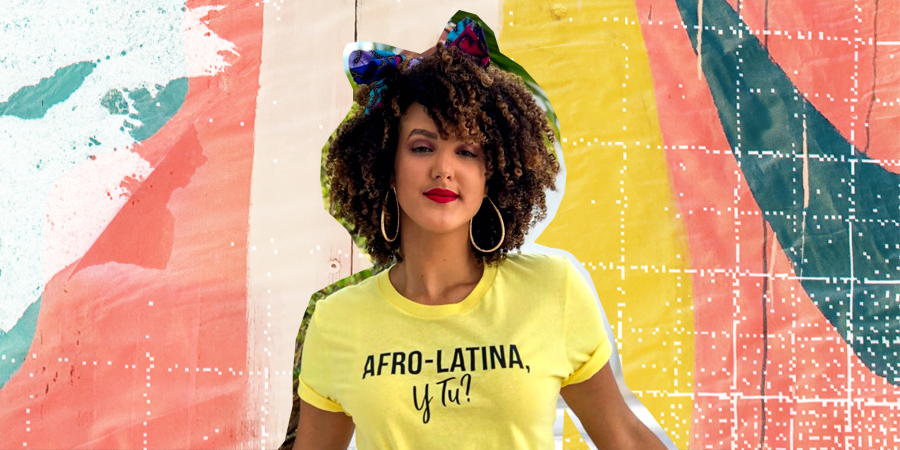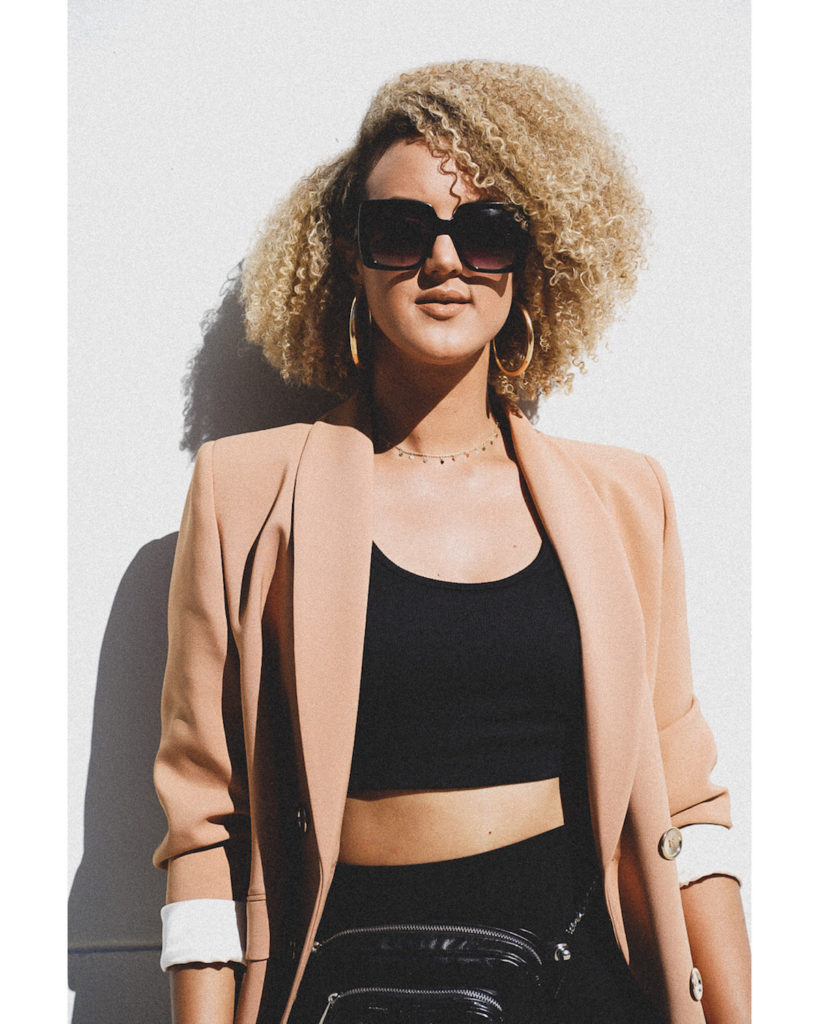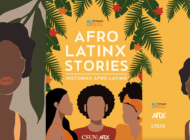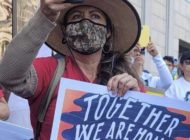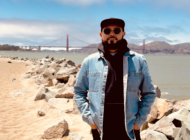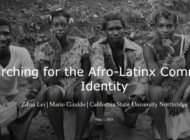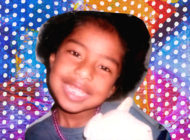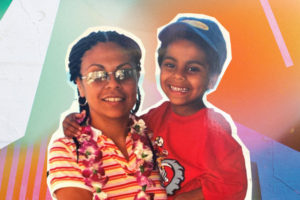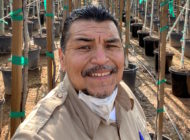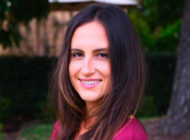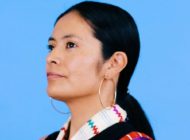In this episode, Graciela Colorado talks to Sherly Tavárez, founder and CEO of Hause of Curls and a self identified Afro-Latina.
By GRACIELA COLORADO
EL NUEVO SOL
Graciela Colorado: Welcome to Radio Nepantla, a podcast by El Nuevo Sol, the multimedia site for the Spanish-language journalism program at California State University at Northridge. My name is Graciela Colorado. The title of this series is Afro-Latinx. We want to tell here diverse stories of Afro-Latinx, Black Latinx, and Afro-Latin American identity. According to the Pew Hispanic Center, one out of every four Latinos in the nation identify as Afro-Latinx. This is the same proportion of Afro-Latin Americans in that region. We decided to use the term Afro-Latinx—with X—to be inclusive of non-binary people. The umbrella term “Black-Latinx” refers to biracial people with one African- American and one Latinx parent. The umbrella term “Afro-Latin American” refers to people of African ancestry in Latin America.
In this episode I talked to Sherly Tavárez, founder and CEO of Hause of Curls and a self identified Afro-Latina.
Sherly Tavárez: I was born in the Dominican Republic, moved to Orlando Florida when I was three years old with my family. And I moved to New York eight years ago, so most of my growing up was in Orlando.
Graciela Colorado: Growing up Sherly was surrounded by others who shared the same culture and ethnic backgrounds.
Sherly Tavárez: I was really always around people like me, there were a lot of Puerto Ricans that lived in Orlando, a few Dominican here and there but I always found my little group, my best friends were all Dominican, Puerto Rican so we kind of just always grew up together. And not really feeling any different because my school had a lot of Latinos, too.
Graciela Colorado: Sherly grew up being very involved with her family and always felt like she was a part of the Latino community because of the culture and traditions her family would practice.
Sherly Tavárez: A lot of my friends were Latinos, as well, so we had the same rules that we had to follow and we ate the same food so everything was pretty much the same. Especially in the neighborhood—we all lived in the neighborhood, all of our parents knew each other so they were all friends. My mom, we grew up listening to the music, eating the food, my tias would come over, they would dance. I definitely felt very connected to being Dominican. I felt like I didn’t know a lot about the country but I did know a lot about the culture because my mom made sure that we knew.
Graciela Colorado: Growing up Sherly saw a lot of people with straight hair and didn’t always feel comfortable wearing her natural hair.
Sherly Tavárez: My mom started relaxing my hair when I was six years old so I didn’t even know what my natural hair looked like. We would go to the hair salon every single weekend—longer than I could remember. We would make it a whole day thing because we would be there from 9 to 5 every Saturday. I just kind of felt like a slave to my hair at some point.
After I moved to New York my best friend started letting her hair go natural and stopped relaxing, blow drying and she was like, “I’m just going to let my curls be.” I was always very aware of my looks, and felt like it was important to look the part. Being in the fashion industry it was always important for me to fit in and so I finally just decided one day I was going to stop relaxing my hair but I would keep blow drying it. One day I just stopped everything and I started to see how my hair was growing in and I started taking care of it, learning the products that it needed.
I started seeing the community was learning a lot about their own hair and teaching people—YouTube channels, a lot of influencers were going natural. And that’s when I kind of got into the community and going to events and started meeting people from different hair brands and then two-and-half years ago, I felt like there was nothing that represented the Latinx community in the natural hair movement. And so I was going to a curly hair event and I wanted a T-shirt that represented and expressed myself. And I couldn’t find one and that led me to starting Hause of Curls.
Graciela Colorado: Sherly searched for brands and clothing that would best represent her confidence in her natural curly hair, this motivated her to start her own clothing brand Hause of Curls. The company encourages women to wear their hair naturally while feeling empowered.
Sherly Tavárez: I’ve gotten a lot of messages from different girls telling me, “thank you for showing this brand, I honestly feel so comfortable seeing women that look like me, wearing their hair naturally and speaking about their struggles.” Some girls felt really shy to even just talk about their journey and their hair before this brand. I did a lot of events before COVID where we all got together, we did a lot of pop ups, and different events where we just got together and just talked and took pictures. It’s just really good to be around many people that have been through struggles that you have been through because not everyone understands what it’s like growing up with curly hair so it’s a different type of community. And we didn’t really have that type of community before and that’s exactly what I wanted to bring with my brand.
Graciela Colorado: With Hause of Curls, Sherly also hopes to bring the conversations of racism in between the Latino community and what the term Afro-Latina means.
Sherly Tavárez: Before Afro-Latinx was never spoken about, not with my family not with my friends, it was not even a thing until recently. No one ever spoke about that, no one ever spoke about where curly hair comes from, where your roots come from. My mom actually showed me a picture of my great grandma the other day and she was Black! That was something that we never spoke about, because in Dominican Republic the darker that you are the more racists they are towards you. I never really understood it, I just knew it was. I love that we are now opening up this conversation and speaking about it. Especially in the Latinx community, we talk about other racists but even within our community there is a lot of racism. In my country there is a lot of racism, if I go now with my curly hair they will still be like, “peinate,” “you didn’t do your hair today.” So it’s something that we are still struggling about but we are at least speaking about it and I love that my brand is opening up that conversation as well.
Sherly Tavárez: We have a T-shirt that I made early on and it says, “Afro-Latina, ¿y tú?” So, you know, it’s a conversation starter. Like if you don’t know what the word is, “what is that?” And people start talking about it. And if you do—it stands in solidarity with others.
Graciela Colorado: Sherly has been able to inspire others. The lack of representation from outlets inspired her to have conversations that are hardly to happen.
Sherly Tavárez: Speaking with my friends who are influencers and content creators as well, a lot of us have curly hair, we’re brown, it was something that came up. We started speaking about it, we started doing events about it, we started speaking panels about it and bringing light to it. So we were going to shed light on it because no one ever just speaks about it. I felt like there was a lot of media and TV that didn’t represent Afro-Latinx people and that’s what we wanted to do. We wanted to bring forward people who don’t ever get seen, who have great talent and no one ever speaks about them.
On my page we try to do, “story takeovers” every week with someone different and let them tell their story, their curly hair journey, how they got there.
Graciela Colorado: With Hause of Curls, Sherly hopes to become an inspiration for the younger generation so that they feel comfortable wearing their own hair.
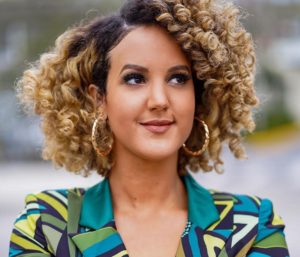 Sherly Tavárez: I focused on hair because it’s such an important part of a women, I think that when our hair doesn’t look good or when we’re having a bad hair day, it kind of messes up our whole mood, especially for the Latino community no matter if you have curly hair or not, hair is a big deal. So, for girls with curly hair, I think I started it more so for the younger generation because I didn’t have anything like this or anyone like this to look up to when I was growing up and I feel like if I did and if I saw myself in more media, or represented better, then I wouldn’t have felt so bad about me not having stick-straight hair. So, one of our main goals is to get this brand to the younger audience and speak with them. I’ve done a lot of speaking engagements with middle schoolers, elementary, even colleges and I try to speak to them about my journey, my struggles and how it’s okay to wear your natural hair now. And I think I’ve seen a lot more people wearing their natural hair now than I’ve ever before which is amazing and it’s definitely what we want to accomplish with Hause of Curls.
Sherly Tavárez: I focused on hair because it’s such an important part of a women, I think that when our hair doesn’t look good or when we’re having a bad hair day, it kind of messes up our whole mood, especially for the Latino community no matter if you have curly hair or not, hair is a big deal. So, for girls with curly hair, I think I started it more so for the younger generation because I didn’t have anything like this or anyone like this to look up to when I was growing up and I feel like if I did and if I saw myself in more media, or represented better, then I wouldn’t have felt so bad about me not having stick-straight hair. So, one of our main goals is to get this brand to the younger audience and speak with them. I’ve done a lot of speaking engagements with middle schoolers, elementary, even colleges and I try to speak to them about my journey, my struggles and how it’s okay to wear your natural hair now. And I think I’ve seen a lot more people wearing their natural hair now than I’ve ever before which is amazing and it’s definitely what we want to accomplish with Hause of Curls.
Graciela Colorado: Though finding the importance of her natural hair wasn’t until she was an adult, Sherly never felt resentment towards her mother for relaxing her hair at such a young age.
Sherly Tavárez: I play around her all the time now and I’m like, “ you see I could’ve had this beautiful hair my whole life,” but because she actually gave me a boy buzz cut when I was six years old so I started first grade with a boy haircut because she could not deal with my hair. I get it because she grew up in a different era and so for her it was just a lot of work. She was a single mom, she didn’t understand because she didn’t have the resources that we have now. There weren’t all these curly hair products, there wasn’t YouTube back then, there was nowhere for her to go and learn about it so I understand where she was coming from.
I actually convinced her to go natural two years ago, so she’s also wearing her curly hair and letting her grays out, she’s not dying her hair anymore so that makes me feel really proud that I inspired her to go natural. But I understand where she was coming from because it’s a whole different era and she waited till she was 58 years old to go natural so I can imagine how long she had to wait to feel like her natural self and I’m just glad I did it when I did it.
Graciela Colorado: Aside from overcoming all the struggles and adversities Sherly has lived through about her identity, she pushes herself everything to be her authentic self all the time.
Sherly Tavárez: Obviously there’s an everyday struggle with something but for the most part I definitely do feel like I’ve reached my most authentic self because I don’t worry as much about what people think or say about me like I used to and I think that was part of the problem with not being or wearing my natural hair and not being my natural self was that I was always trying to be someone for someone else and not for myself. So now I feel like everyday that I dress up, do my hair or do my makeup it’s for me. It’s for me to feel good, for me to feel comfortable and I feel like that’s what I try to put out everyday on my platform through my brand and anytime that I am speaking through an interview or to a younger audience. I am always trying to be myself and explain how important it is to be yourself and to feel like your natural self, which is one of the biggest things with natural hair is that, before you wore your hair naturally you were just trying to conform to society’s beauty standards. And we are trying to change that little by little.
Graciela Colorado: In the future Sherly hopes to educate her children that they are no different and that they are beautiful. She hopes to instill the concept of embracing everyone’s different looks and different cultures because no matter what we are all beautiful.
Graciela Colorado: Thanks for listening to Radio Nepantla- La Voz que Traspasa Fronteras. We invite you to listen to the rest of the series Afrolatinx… We will tell stories of Afro-Latinx identity.
Listen to our podcast on your favorite platform. You can also check our SoundCloud channel- ElNuevoSol– or our website: ElNuevoSol dot net.
This was a production of El Nuevo Sol– the multimedia project of the Spanish-Language Journalism program at Cal State University, Northridge.
This episode was produced and edited by Graciela Colorado.
Voices of Graciela Colorado and Sherly Tavárez.
Music by the Afro-Colombian group, Kombilesa Mi.
See you next time.
Tags: #AFLX Afro-Latina business Dominican Republic Graciela Colorado Hause of Curls podcast Radio Nepantla Sherly Tavárez







